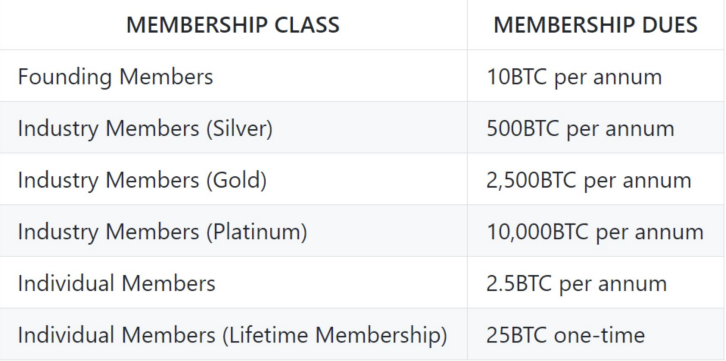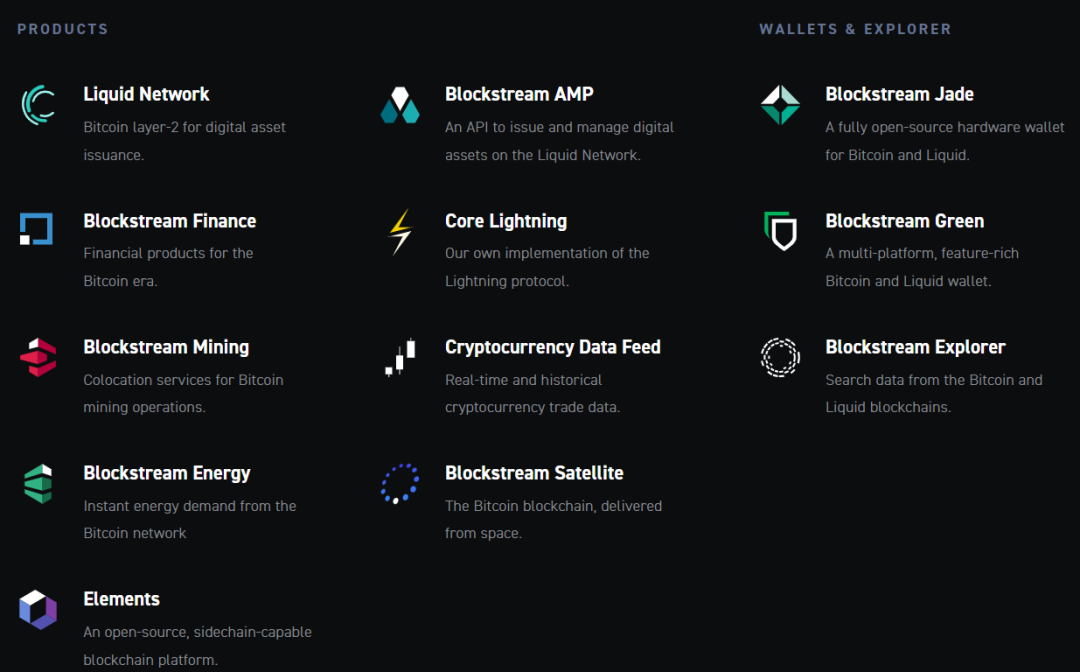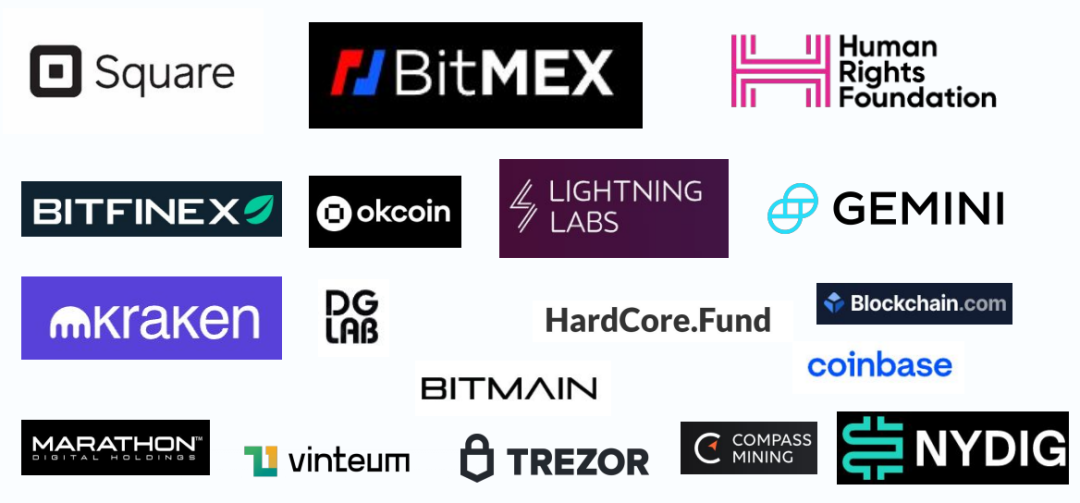From hard forks to the Lightning Network, who is supporting the Bitcoin ecosystem?
Who supports the Bitcoin ecosystem, from hard forks to the Lightning Network?
Author | [email protected]
When we talk about the development of Bitcoin, the first thing that comes to mind is Satoshi Nakamoto, who released the Bitcoin whitepaper titled “Bitcoin: A Peer-to-Peer Electronic Cash System” in 2008, and thus the Bitcoin protocol was born.
Like most software implementations, regular maintenance and upgrading of the Bitcoin protocol are crucial. As Bitcoin is not controlled by a single entity, development and maintenance must be achieved through consensus among network participants. Essentially, there is no individual or company managing the development of the Bitcoin project, but rather it is initiated by individuals or teams from around the world.
- Semafor The US Department of Justice is considering fraud charges against Binance, but is concerned about a FTX-style run in the market.
- MicroStrategy plans to sell stocks to raise $750 million to purchase Bitcoin.
- Wu said July mining news Smagma big order and Samsung’s new technology, mainland promotes Fil mining machine, Little Deer Bhutan mining fund, etc.
Bitcoin resources and the scale of the ecosystem continue to grow, and various organizations have emerged, contributing to the development of the Bitcoin protocol. This is also why Bitcoin has evolved from a niche open-source software to a robust digital infrastructure that millions of people can rely on.
In this article, we will outline some of the key organizations and individuals funding the development of the open-source Bitcoin protocol and ecosystem.
Bitcoin Core: The Core Contributing Team Behind Bitcoin
Bitcoin has been around for over 15 years, and the creator of Bitcoin has long disappeared from the internet, but there have always been teams maintaining the technical updates of Bitcoin. The most well-known among them is the Bitcoin Core team.
Bitcoin Core is a software client that participants use to create nodes on the Bitcoin network, store coins, make transactions, and perform other operations. Think of it as the interface or gateway that determines how users interact with the Bitcoin blockchain. The functionality of Bitcoin Core is similar to how Google Chrome provides users with the functionalities needed to connect to and browse the internet.
Just as there are multiple internet browsers besides Chrome, there are also multiple Bitcoin software clients besides Bitcoin Core. However, these other clients have not been as widely used or influential as the Bitcoin Core implementation. Bitcoin Core is still considered the Bitcoin software client that best preserves the ideology advocated by Satoshi Nakamoto. Additionally, Bitcoin Core continues to benefit from the efforts of a large development team spread across the globe. Therefore, it often sets standards for other Bitcoin software clients.
The Bitcoin Core development team is large, so it can be difficult to track all contributors. Note that there are no special requirements to become a Bitcoin developer. Anyone can join, leave, or choose the development area they wish to focus on. Developers don’t even have to disclose their identities to contribute to the development of Bitcoin Core.
Contributions of Bitcoin Core
As the original and primary software implementation of the Bitcoin protocol, Bitcoin Core sets standards for other clients and ensures the continued operation of the network.
- Decentralization: By running Bitcoin Core, anyone can operate a full node and contribute to the decentralization of the network. This power distribution prevents any single entity from controlling Bitcoin.
- Security: Bitcoin Core’s strict transaction validation and complete blockchain records contribute to the security of the network. Attempts to alter past transactions are detected by full nodes, preventing fraudulent changes.
- Development and maintenance: The open-source nature of Bitcoin Core allows developers from around the world to continuously improve it. This collective effort ensures that Bitcoin can adapt to new challenges and a changing environment. In August 2017, Bitcoin Core led the activation of the Segregated Witness (SegWit) proposal. This proposal increased the block capacity of Bitcoin and also addressed transaction scalability, including the proposed Lightning Network.
Bitcoin Core is not just software, it is the driving force behind the Bitcoin network. It ensures the operation of the system, maintains its decentralized structure, and ensures that the blockchain is not affected by fraudulent activities.
Focus on supporting the Bitcoin ecosystem
In the early years, the development of Bitcoin was mainly maintained and supported by Satoshi Nakamoto and some other volunteers. As Bitcoin gradually gained popularity and formed a market, developers were able to obtain Bitcoin, which gradually attracted external developers.
Bitcoin Foundation
The Bitcoin Foundation was created in 2012 by Bitcoin core developers Gavin Andresen and Jon Matonis. As a non-profit organization, the foundation primarily funds some developers. The organization aims to promote the development and adoption of Bitcoin and represents the Bitcoin community in communication and coordination with governments, businesses, and other parties. Its mission is to standardize, protect, and promote the use of Bitcoin cryptocurrency for global users. The foundation is committed to driving the development and innovation of Bitcoin technology and plays an important role in the Bitcoin ecosystem.

One of the main sources of funding for the Bitcoin Foundation is membership fees. However, by early 2015, the foundation had almost depleted its financial reserves. Nevertheless, the foundation has made significant contributions to the development of Bitcoin technology and the promotion and application of Bitcoin globally.
Chaincode Labs
In 2014, Alex Morcos and Suhas Daftuar created Chaincode Labs, a digital currency research organization based in New York, which has contributed to the advancement of the Bitcoin network and is dedicated to supporting important non-profit organizations for Bitcoin. Chaincode focuses on the development, review, testing, and maintenance of Bitcoin software. In addition to Bitcoin developers in its permanent team, the platform also provides funding to independent Bitcoin developers. Some well-known Bitcoin core developers funded by the organization include Pieter Wuille, Alex Morcos, Suhas Daftuar, John Newbury, Russ Yanofsky, Marco Falke, and Carl Dong.
MIT Digital Currency Initiative (DCI)
The MIT Digital Currency Initiative is another cryptocurrency development research organization that provides funding for external developers and its own dedicated Bitcoin core development team. However, unlike most Bitcoin development sponsors, MIT DCI relies on donations to raise funds. Bitcoin core developers associated with the organization include Wladimir van der Laan and Cory Field. Since April 2015, developers working under the support of DCI have contributed 14% of the Bitcoin Core code. In 2016, they also announced the launch of a $900,000 Bitcoin development fund, attracting donations from several major exchanges.
Blockstream
Blockstream is a venture-backed blockchain technology company founded in 2014 by Bitcoin Core developers including Gregory Maxwell, Jorge Timón, Matt Corallo, Pieter Wuille, and Mark Friedenbach. In its early days, Blockstream raised $21 million in Series A funding.
As a company, its main goal is to establish sidechains that allow for interoperable transactions with Bitcoin, strengthening the expansion of the Bitcoin ecosystem. Blockstream has made significant contributions to Bitcoin, ranging from numerous Bitcoin Improvement Proposals (BIPs) and research on segregated witness, to confidential transactions, cryptographic code libraries, and the Lightning Network, among others. Its current products include the Lightning Network, sidechains, and multi-signature wallets.

New Developments in Bitcoin Funding Institutions
In addition to the examples mentioned above, with significantly improved funding diversity, many other organizations are directly or indirectly supporting Bitcoin development and maintenance, cryptocurrency exchanges, and other businesses and organizations are beginning to support open-source Bitcoin developers.

Image Source: BitMex research
BitMEX is an exchange that contributes to the development of Bitcoin Core by providing resources to developers. The program was launched in July 2019 and is the first exchange platform to provide grants to Bitcoin developers. It has currently provided a total of $1.7 million in funding (including $500,000 to MIT DCI), offering open-source, unconditional funding contracts for highly transparent projects. The BitMEX Grants team currently consists of five members: Gleb Naumenko, Sjors Provoots, Rene Pickhardt, Chris Coverdale, and Calvin Kim.
Square Crypto is an independent research team created by Square, aiming to improve open-source software for Bitcoin. According to the team’s mission, Square Crypto sponsors developers who are dedicated to proposing and implementing Bitcoin core upgrades. The Bitcoin Core developers sponsored by Square Crypto include John Atack, Vasil Dimo, and Gloria Zhu. On the other hand, Matt Corallo is a permanent member of the Square Crypto team.
Established in 2020 by John Newbery and Mike Schmidt, Brink is a non-profit organization dedicated to improving the Bitcoin protocol. It focuses on the development of the Bitcoin protocol through foundational research and development, supporting the Bitcoin developer community through funding, education, and guidance. Its funding comes 100% from donations by individuals and organizations who wish to support the open-source Bitcoin network and protocol. Brink has already completed two funding rounds. In June of this year, former Twitter CEO Jack Dorsey and his philanthropic fund Start Small pledged to donate $5 million to Brink. Brink will receive $1 million in funding each year for the next five years.
Opensats is a non-profit organization dedicated to Bitcoin and other projects. It aims to fund free and open-source projects related to Bitcoin, as well as related education and research programs. OpenSats provides a platform that does not charge any fees and transfers 100% of donations to projects and general funds through our platform. It is committed to providing funding for Bitcoin and peripheral technologies, including the development of new Bitcoin and Bitcoin-related software, improving existing free and open-source software, educating and promoting Bitcoin, and researching Bitcoin-related topics. In May of this year, OpenSats announced receiving a $10 million donation from Jack Dorsey’s charitable initiative #startsmall, which will be used to support the development of free and open-source software and projects focusing on Bitcoin, decentralized social protocol Nostr, and related technologies.
Summary
Since the birth of Bitcoin, various institutions, companies, and organizations have made technical or financial contributions to the development of the Bitcoin protocol to varying degrees. As the market value of Bitcoin continues to grow, the ecosystem based on the Bitcoin public chain will also gradually expand, especially applications in the direction of Bitcoin Layer 2 such as the Lightning Network and sidechains. In the future, developers, companies, and organizations will also develop broader businesses around this type of infrastructure.
References
https://blog.bitmex.com/wp-content/uploads/2022/10/Bitcoin-Grant-Presentation-1.pdf
We will continue to update Blocking; if you have any questions or suggestions, please contact us!
Was this article helpful?
93 out of 132 found this helpful
Related articles
- Cathie Wood’s latest interview Investors changing Wall Street are betting on Bitcoin and artificial intelligence
- Opinion If Curve dies, the entire DeFi market will need a considerable recovery period.
- Next BRC20? Understanding the Bitcoin Upstream Game Asset Minting Protocol Ord Games in 3 Minutes
- Ord Games Introducing Bitcoin into the Gaming Protocol
- Taking history as a lesson, combining with the macro perspective before the next bull market arrives, we still need to go through a ‘FTX-style major collapse’.
- Weekly Selection | Worldcoin launches WLD token, sparking market discussions; zkSync ecosystem suffers heavy blow; Twitter homepage logo changed to X.
- Weekly Summary of the Cryptocurrency Market (7.22-7.28) Bitcoin Volatility, Altcoins Welcoming a Breathing Space?




